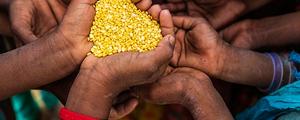WASHINGTON, D.C. -- The current spike in global food prices is likely to affect substantial numbers of sub-Saharan Africans who were already struggling to afford food. A median of 57% of residents across 28 countries that Gallup surveyed in 2009 and 2010 said there were times in the past 12 months when they did not have enough money to buy the food that they or their families needed. This percentage was as high as 87% in the Central African Republic and higher than 60% in several countries.
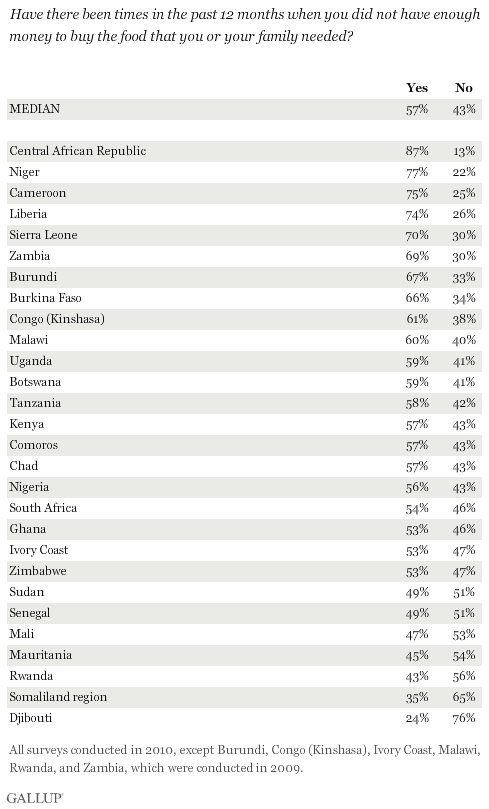
The results show a wide range in people's ability to afford food in this region, even before the Food and Agriculture Organization of the United Nations' food price index hit a record high in February. What's more, a median of 38% of sub-Saharan Africans in 2010 told Gallup they were "finding it very difficult to live on their present income," up from 31% in 2009.
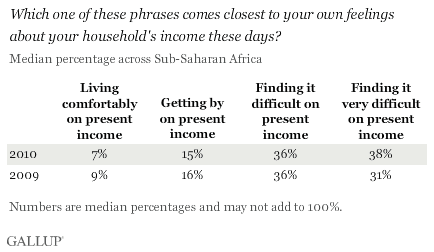
Those who are finding it very difficult to live on their present income are the most likely to say there were times in the past year when they did not have enough money for food. That said, sizable minorities -- and in some cases large majorities -- of those who say they are "living comfortably" or "getting by" also say this.
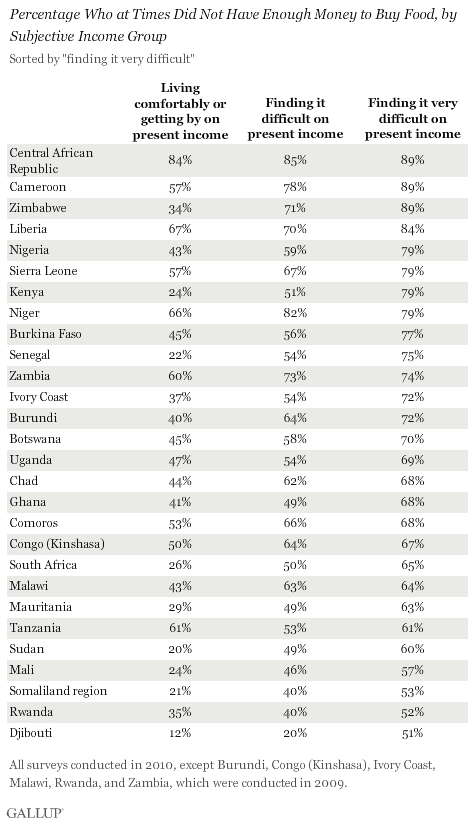
The data showcase the widespread nature of the food insecurity challenge facing sub-Saharan Africa. While each country brings its own economic, political, and agricultural challenges to the equation, further increases in global food prices will be felt across the region and among those in various economic situations.
Certain groups region-wide are also more likely to at times lack money for food than others. While men and women struggle to afford food to similar degrees, those who are older or have more children younger than 15 living in their households are more likely to struggle than those who are younger or have fewer children. Additionally, those with less than nine years of education are more likely to struggle than those with more education.
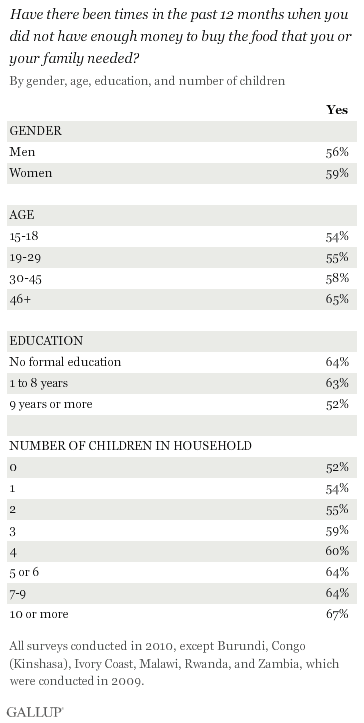
Implications
Gallup's findings provide ground-level intelligence on the food security challenge facing sub-Saharan Africa, even before the most recent surge in global food prices. With the recent unrest in North Africa attributed in part to economic anxiety bubbling over, these data also point to areas of urgent concern in sub-Saharan Africa as people there feel increasingly unable to meet one of their most basic needs.
Cynthia English also contributed to this report.
For complete data sets or custom research from the more than 150 countries Gallup continually surveys, please contact SocialandEconomicAnalysis@gallup.com or call 202.715.3030.
Survey Methods
Results are based on face-to-face interviews with approximately 1,000 adults, aged 15 and older, conducted in 2009 and 2010 in 28 countries in sub-Saharan Africa. Surveys were conducted in both years in all countries except Burundi, Congo (Kinshasa), Ivory Coast, Malawi, Rwanda, and Zambia. In those cases, 2009 results are reported alongside 2010 results. Surveys in 2010 were conducted between February and December. Surveys in 2009 were conducted between August and November, except for the Ivory Coast where surveys were conducted in April.
For more complete survey dates, please review Gallup's Country Data Set details.
For results based on the total sample of national adults, one can say with 95% confidence that the maximum margin of sampling error ranged from a low of ±3.3 percentage points to ±4.2 percentage points. The margin of error reflects the influence of data weighting. In addition to sampling error, question wording and practical difficulties in conducting surveys can introduce error or bias into the findings of public opinion polls.
